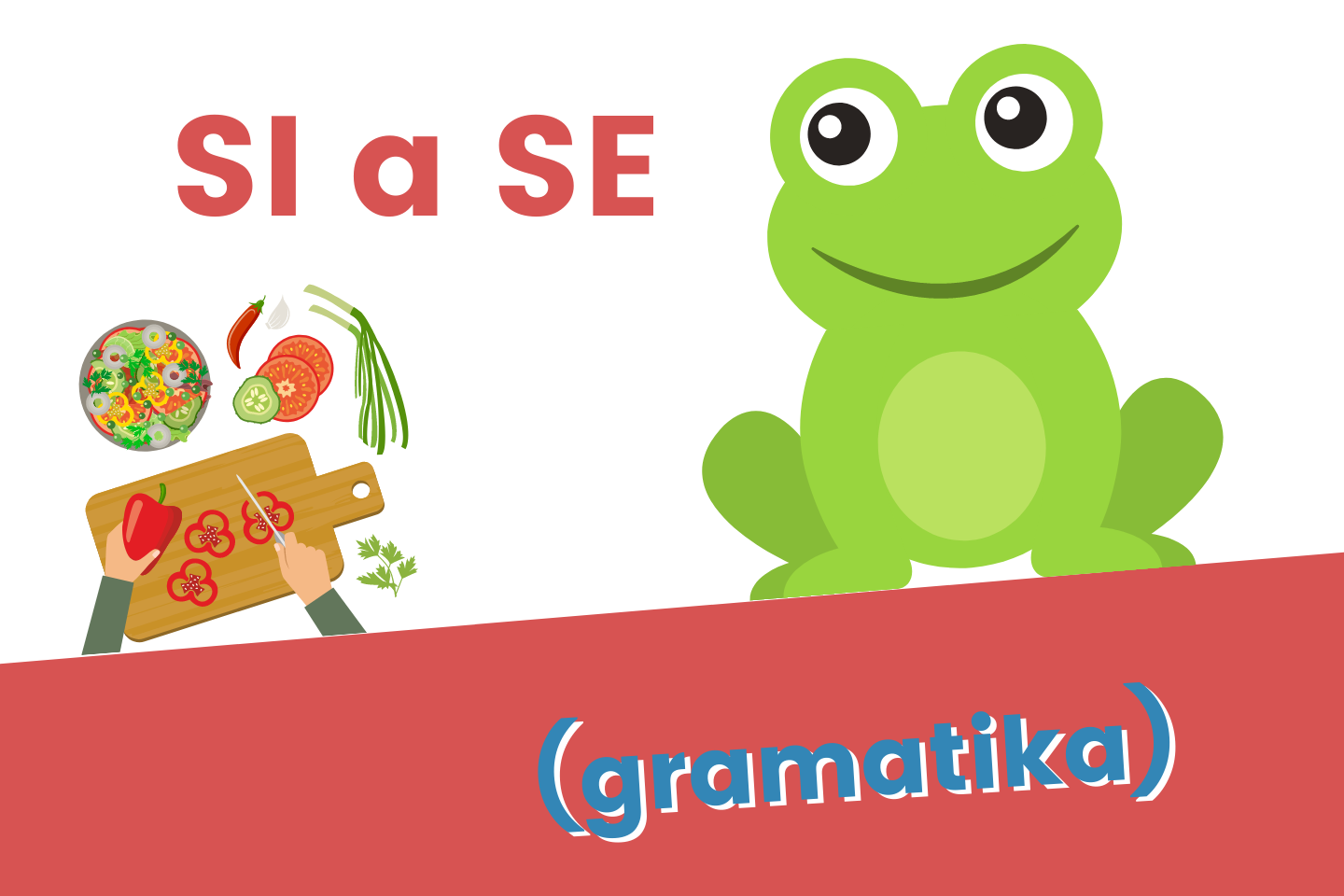
(220***) Eliška: Jak fungují SI a SE
Podcast: Play in new window | Download (Duration: 17:25 — 22.7MB)
SUBSCRIBE to slowczech RSS
Nazdárek, jak se daří? Dneska sedím v zahradě, a proto uslyšíš zpívat ptáky. Moc ráda poslouchám ptáky a myslím (nebo aspoň doufám), že ty taky. Než začnu mluvit o SI a SE, chci ti říct něco důležitého, budu mluvit anglicky, to je rychlejší –
- patreon, videa “behind the scenes“
- offline events – Czech speaking trips and workshop for parents and kids in Brno
- 21 day grammar challenge starts soon
No, a dnešní téma je málo oblíbené téma. Protože někdy není vůbec logické. Ale v češtině používáme SI a SE skoro pořád, používám je velmi často. A tak je důležité rozumět aspoň trošku, proč a co to znamená.
Dneska ti řeknu o SI a SE tak, jak je učím já. Mám svoji teorii. Tak, jdeme na to!
SI a SE jsou krátká slova, která stojí vždycky se slovesem (sloveso, to je například dělat, vařit, spát) a jsou to slova, která můžou kompletně změnit význam. Ve francouzštině a v němčině existuje stejný koncept. Pro anglicky mluvící je často tento koncept jako z jiné planety 🙂
Já mám čtyři skupiny SI a SE. První skupina jsou slovesa, která nikdy nemají SI nebo SE. Nejsou nikdy tzv. (tak zvaně) reflexivní. Například: Vím, kde je Brno.
Druhá skupina jsou slovesa, která musí mít SI nebo SE pořád. Jsou na 100% reflexivní a když zapomene říct SI nebo SE, není to velká chyba. Pořád rozumíme. Například: Dívám se na televizi. Když řekneš jenom dívám, rozumíme.
A třetí skupina jsou slovesa, která někdy mají SI, někdy SE a někdy nic. A tady je moc důležité správně používat SI a SE. Proč? Podívej se do transkriptu na ilustrace a pochopíš ihned. Jsou to veselé a vtipné ilustrace, pomůže ti to pochopit koncept.
Čtvrtá skupina jsou slovesa, která někdy mají SE, někdy SI. Některá slovesa můžou nemít SI a SE, některá slovesa musí mít SI a SE. A tady existuje tzv. (tak zvaná) reciprocita.
Nebudu mluvit o slovesech, která nepoužívají SI nebo SE. Jdeme rovnou na slovesa, která mají někdy SE, někdy SI a někdy nic.
Slovesa, která mají někdy SE, někdy SI a někdy nic.
Budeme mluvit nejdřív o SE.
Na prvním obrázku je žába a ta žába sedí v hrnci v horké vodě. Ta voda vaří. A žába se vaří. Žába vaří sebe sama, nevaří jiné jídlo, ale sebe (žábu). A bude to delikatesa, žabí stehýnka – francouzská delikatesa.
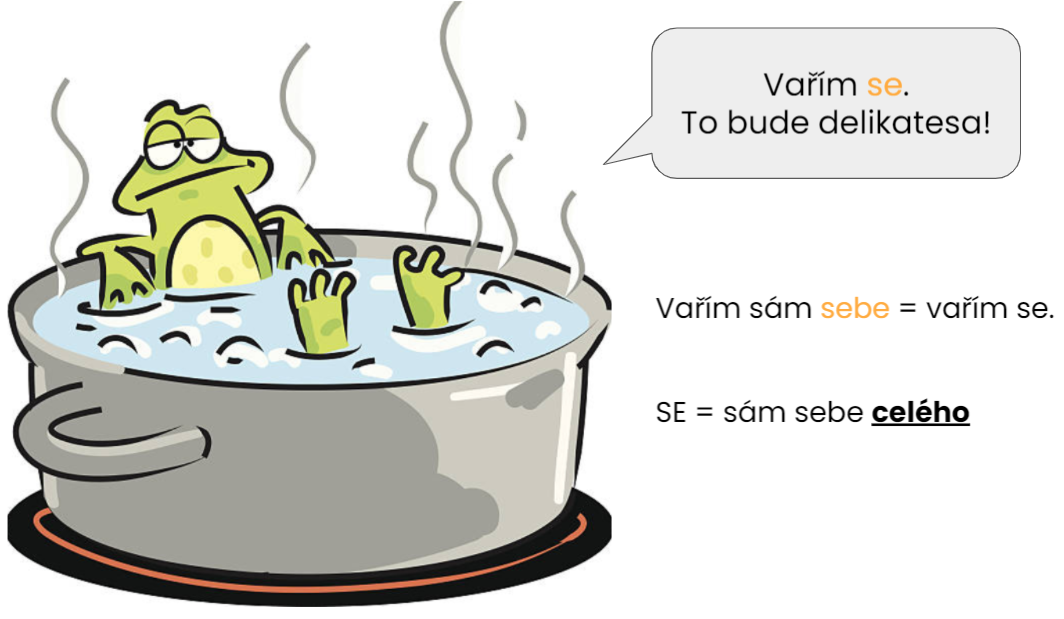
Další příklady:
Každý večer se myju. Myju celé tělo, myju sebe sama, myju si vlasy, obličej, nohy, ruce,… všechno. Myju se.
Každé ráno se oblékám. Dávám oblečení na celé svoje tělo.
Vidím se. Dívám se do zrcadla a vidím sama sebe, nevidím jiného člověka, nevidím souseda, nevidím kočku, ale vidím se, Elišku.
Teď budeme mluvit o SI.
Když použiju stejná slovesa, ale neřeknu SE a řeknu SI, znamená to něco jiného. A všimni si, že po SI je v tomto kontextu vždycky další slovo a to slovo je v akuzativu.
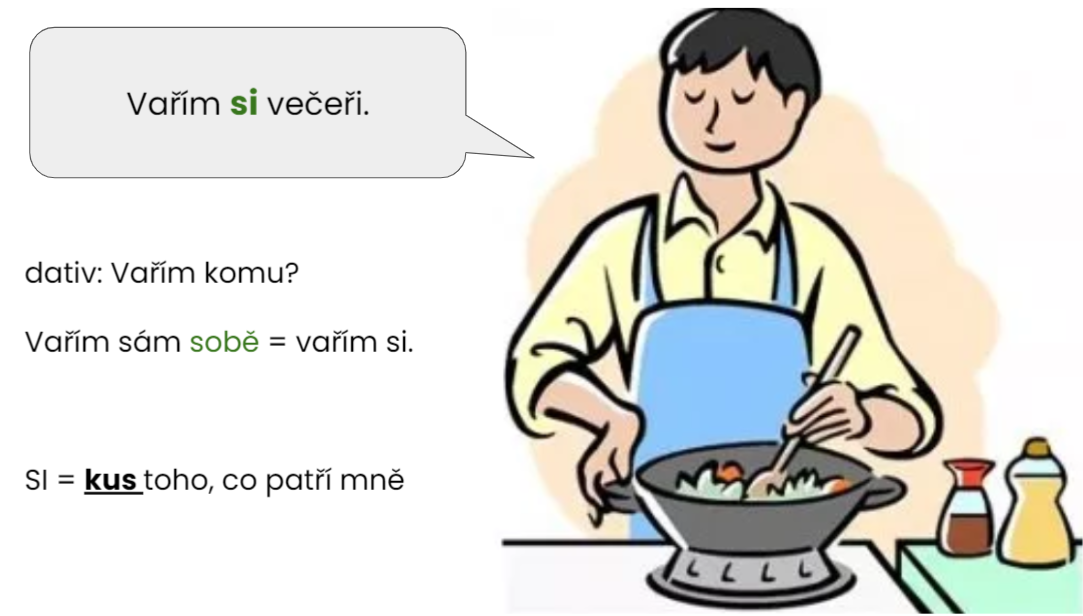
Vařím si večeři. To znamená, že vařím večeři a je jenom pro mě, tu večeři vařím pro sebe. Nevařím ji pro děti, nevařím ji pro manžela, jenom pro sebe a jenom já ji budu jíst.
Další příklady:
Myju si vlasy. Myju si ruce. Myju si nohy. Jsou to moje vlasy, moje ruce, moje nohy a já sama je myju, nemyju je manželovi, nemyju je dítěti. Myju si je. Takže SI je krátké slovo, které říká “sama sobě / sám sobě”.
Oblékám si svetr. Oblékám si triko. Oblékám si kalhoty. Můj svetr a oblékám ho na sebe, na svoje (moje) tělo. Ne na tělo jiného člověka.
Čtu si knihu. Každý večer si čtu knihu. Nečtu tu knihu dětem nebo kocourovi. Ale tu knihu čtu jenom potichu ve svojí hlavě sama pro sebe. Čtu si knihu.
Gramaticky, SE je akuzativ – vidím se = I see myself, I see what? Co nebo koho vidím? Vidím maminku. Vidím se. Akuzativ. A SI je dativ – čtu si knihu = I read to myself, indirect object. Čtu komu? Sobě, sama sobě, to myself, si. Dativ.
Slovesa, která mají někdy SE, někdy SI, některá nemají nic, ale existuje tady reciprocita
Poslední možností, jak použít SI a SE, je reciprocita. Takže máme tu trochu jiný význam než vařím se nebo vařím si večeři.
Příklad: Povídáme si. Povídat znamená mluvit nebo diskutovat. Já a moje kamarádka sedíme v kavárně a povídáme si o dovolené. Takže mluvíme spolu, je tu reciproční vztah, já a ona spolu diskutujeme, s nikým jiným.
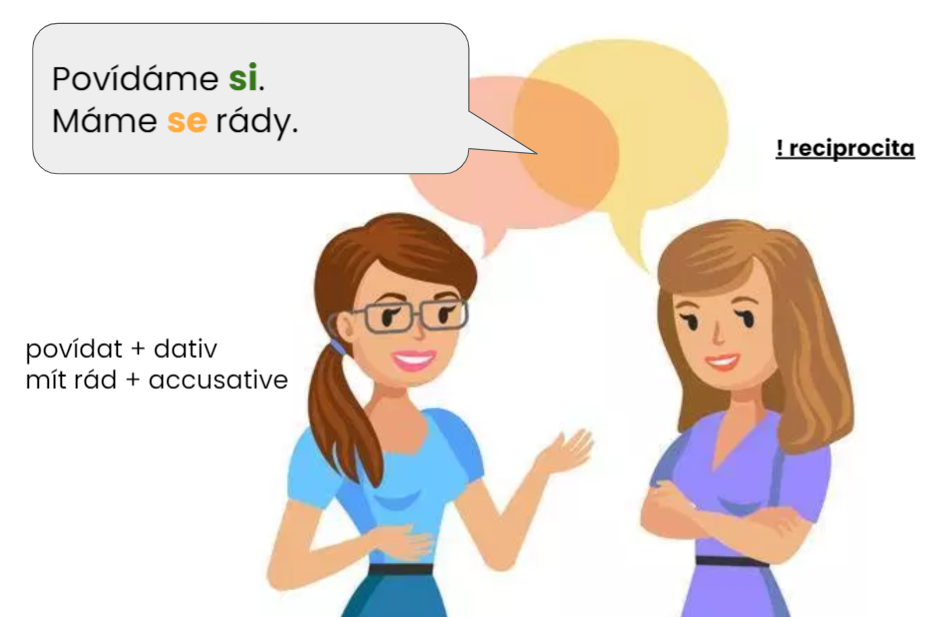
Další příklad: Já a můj kocour se máme rádi. On má rád mě a já mám ráda jeho, takže se máme rádi, my dva spolu. Nebo: já a můj kocour se často hádáme. Já se hádám s ním, on se hádá se mnou. Spolu nebo mezi sebou se hádáme.
No, a možná se ptáš, proč je někdy SE a někdy SI, když je to reciprocita a to je pořád stejná věc. Dobrá otázka. Když říkám “Máme se rádi”, sloveso “mít rád” potřebuje akuzativ, nemůžu říct “mám ráda čokoládou nebo mám ráda čokoládě”. Musím říct “mám ráda čokoládu. A proto, když řeknu “máme se rádi”, to SE znamená zase akuzativ.
Co sloveso povídat? S kamarádkou si povídáme. Povídám příběh komu? Povídám příběh manželovi, povídám příběh kamarádce… Povídám potřebuje dativ. A proto použiju SI.
No, tak to bylo rychlé a krátké a stručné vysvětlení toho, jak funguje SI a SE. Jestli máš otázky nebo jestli chceš další trénink, cvičení nebo víc sloves, můžeš si zabukovat jednu nebo dvě lekce se mnou na www.slowczech.com/czech-lessons (pomlčka) a můžeme trénovat SI a SE spolu individuálně.
A jestli chceš skupinový kurz nebo individuální kurz, podívej se na web na aktuální nabídku kurzů. Slowczech je teď moc fajn, spolupracuje s 18 skvělými lektorkami, které umí dobře učit češtinu pro cizince a které jsou prostě super! Tak, měj se hezky, uč se česky a čau! This was an intermediate episode of Czech for foreigners – learn Czech fast, slowly se slowczech. Díky, že sleduješ slowczech.



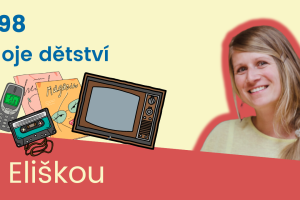









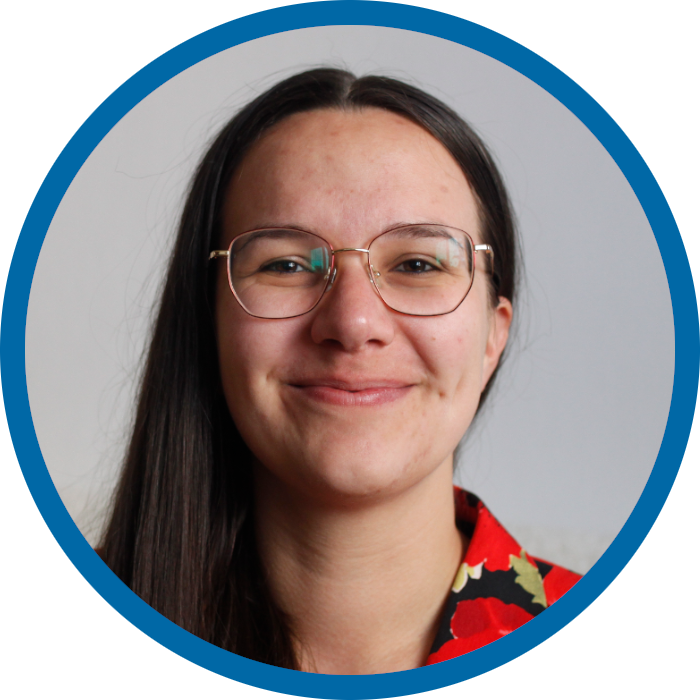










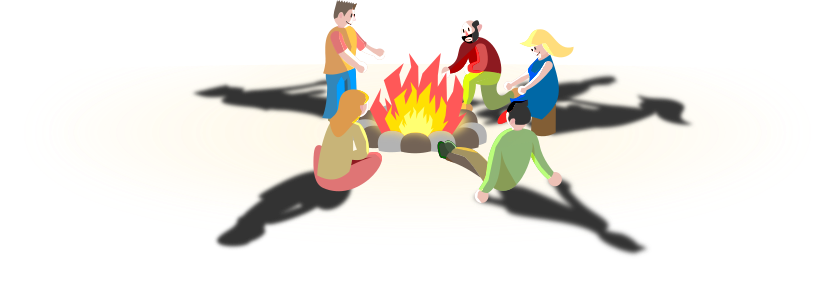
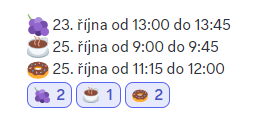

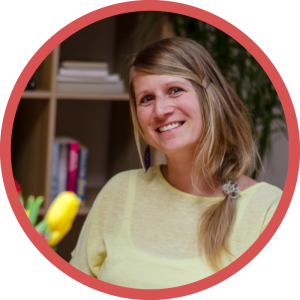
3 Comments
Good topic to cover, thanks. I struggle with SE and SI all the time!
Moc děkuji za vysvětlení a příklady!
Jsem moc ráda, že se ti tato epizoda líbila 🙂 Eliška